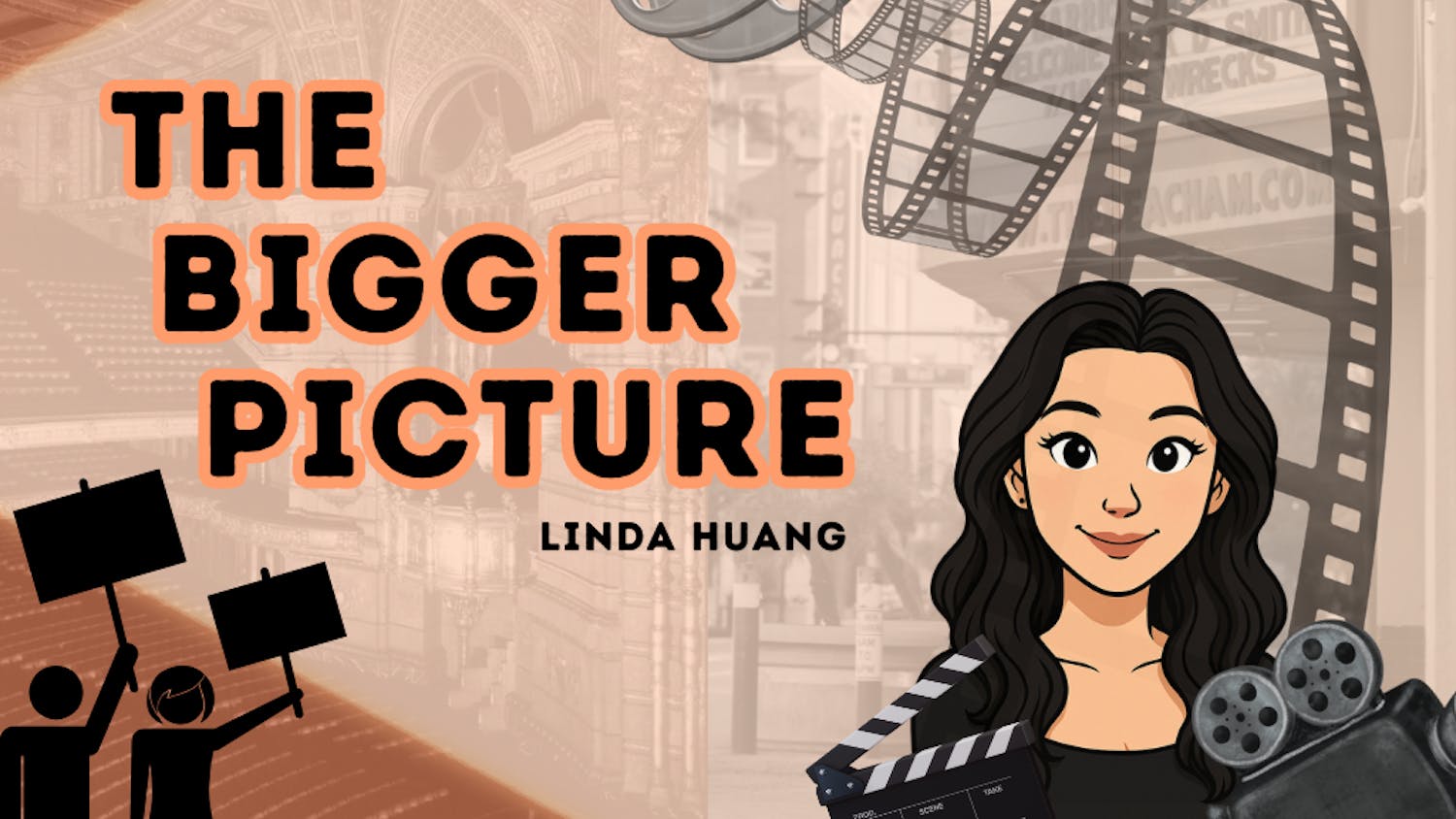“Astoria,” released on Oct. 23, is an adventurous and incredibly bold album by Marianas Trench. Other introductions to this review came and went, but the preceding sentence seems like the only way to sum up the new release and do it any justice.
Four years after releasing their last studio album, “Ever After” (2011), Marianas Trench is back, and flexing some considerable musical muscle. The years between full studio albums were a mixed bag for the Vancouver, British Columbia-based group. Guitarist and lead vocalist for Marianas Trench Josh Ramsay received a Grammy nomination for co-writing Carly Rae Jepsen’s inescapable “Call Me Maybe” (2012). But on the heels of signing a U.S. record deal in 2013, he was hospitalized for pancreatitis, saw his engagement end and found his mother’s health faltering.
Ramsay talked about getting back to music in the wake of all these developments in an Oct. 23 interview with the Toronto Sun.
“I kind of had like a nervous breakdown for a while, and it was just six months of feeling awful, and then I was sitting in the hospital, feeling really dark,” Ramsay said. “I was just kind of there solo, and I kind of had this moment of clarity. “The one thing that is in my power…is getting back to writing … I came out of the hospital and went straight to the studio.”
Among the outpouring of new material were the singles “Here’s to the Zeros” (2014) and “Pop 101” (2014), which Ramsay wrote after working on “Call Me Maybe” to demonstrate how formulaic pop music can be. But even when Marianas Trench’s music sounds conventional and poppy, their lyrical content elevates the work and makes it infinitely more entertaining. Sardonic, biting wit and emotional honesty are this band’s hallmarks, permeating every facet of their music.
In large part, that is why “Astoria” is so shocking. A concept album through and through, “Astoria” takes listeners on a tour of the musical universe, exploring, among other genres, ’80s synthpop, Motown, movie soundtrack and orchestral music. The album’s opening number, its title-track, somehow manages to touch on a majority of these, even incorporating vocal harmonies that would make Queen take notice. “Bohemian Rhapsody” (1975) is perhaps the closest analogy to the song “Astoria,” although the latter, while just as diverse, explores far less bombastic musical territory than the Queen classic.
“Burning Up” follows with a far funkier bent than its predecessor, and Ramsay’s falsetto and raspiness bear more than a passing resemblance to those of the King of Pop himself. However, “Yesterday” is where the band’s signature wit first shines through. “Don’t know where you went / No object permanence / I see I looked at what it meant / And now it’s making sense,” sings Ramsay over horns and what sounds like a Güiro — far different from the guitars and drums on the majority of Marianas Trench’s previous work.
One of the most fascinating qualities of Marianas Trench’s music is how honest and profound it can be, despite the satirical wit. “Dearly Departed” features Ramsay’s voice accompanied by a staccato ukulele and long flowing strings in the background. The juxtaposition of the quippy ukulele with the running strings is an experience in itself, but the effect they have on the vocals (especially once the band’s other members start layering in their own voices) should not be undersold.
Interludes help shuttle listeners through the album’s diverse content, each beautiful enough to catch an absent listener’s attention while also gearing them up for the following song. The appropriately named “Hollywood Renaissance” sounds like something off of an epic blockbuster’s soundtrack, with horns, strings and operatic singing in the background. Somehow, it flows easily into the next song, “Shut Up and Kiss Me,” which sounds like it was transported straight out of Motown’s heyday. It’s like one of those food combinations, like grilled cheese and jam, that shouldn’t go well together but somehow does.
“End of an Era” wraps up the album. The track features Ramsay’s immediate family, including his mother, a vocal teacher, who sing along with him for parts of the song. Their harmonies are haunting — the song is incredibly theatrical, making the brief reference to Shakespeare’s “Midsummer Night’s Dream” all the more appropriate. Furthermore, the singing in the middle of the song — at a part that sounds like a far off echo — is a reference to “Ever After,” where that ditty was a recurring feature.
There isn’t a single song out of place on “Astoria.” This album should be listened to from start to end, and when the final song fades out, listeners will realize just how far the album has taken them.
https://play.spotify.com/album/0eHPSVHLxwAmszY7iseIK7
Marianas Trench releases epic new album 'Astoria'

Canadian band Marianas Trench deliver strong, innovative new album “Astoria.”
Summary
"Astoria" astounds with the diversity of its content, instrumentally and lyrically. Set aside an hour to take it all in, because this album deserves to be listened to end to end.
4.5 Stars




